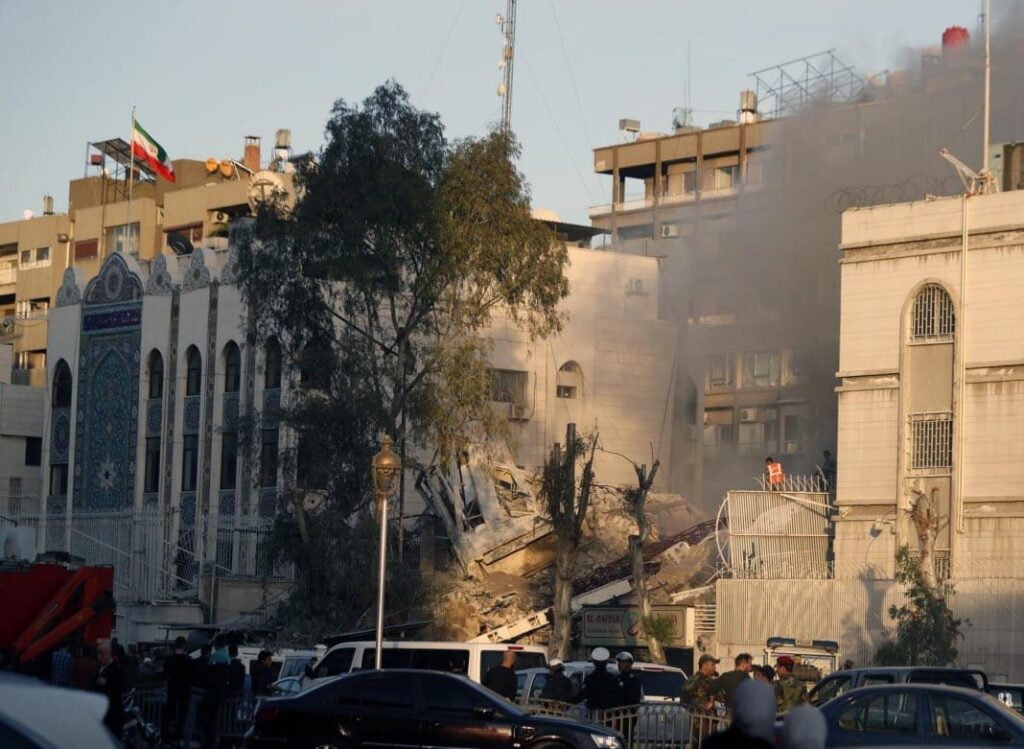That was before an air strike in Syria yesterday that killed Iran’s top regional security commander. The strike killed General Mohammed Reza Zahedi of the Iranian Revolutionary Guard Corps (IRGC) in the Iranian consulate in Damascus, his deputy, another Iranian general and four other Iranians. Our interpretation is that this attack is a precursor to Israel launching a significant escalation in its campaign against Hizbullah in Lebanon.
Yesterday’s air strike is the latest in a long-running series of targeted killings and attacks on Iranian and Hizbullah arms and materiel in Syria and Lebanon, but killing Zahedi may very well be an inflection point. Zahedi was the IRGC commander for Syria and Lebanon and will have been on the Israeli target list for years, if not decades. The Israeli government has not officially admitted that it was responsible for the air strike, in keeping with its formal policy on such operations (although Israeli sources have astounding levels of detail, telling us for example that six missiles were fired by two F-35’s).
An Israel watcher told us that the Israeli government thinks it is sending a message to Iran to stay out of what is about to happen in Lebanon. “Their logic is that if they have the intelligence capabilities to locate Zahedi in Syria, an enemy state, albeit a leaky one, then they can hit other sensitive Iranian targets at will – presumably including in Iran.”
This logic is predicated on the belief that Iran and Hizbullah are in a dominant position which they will not want to jeopardise. They effectively control Lebanon and Syria and will therefore want to maintain the status quo of a low intensity conflict with commensurately low casualties that they can absorb. An Israeli security source told us that “Hizbullah must be looking at Gaza and thinking ‘we do not want to be responsible for this happening in Lebanon’.”
The Israeli government wants to eliminate the threat posed by Hizbullah’s arsenal of over 150,000 rockets and tens of thousands of fighters positioned just across the Blue Line boundary separating Israel and Lebanon. Unless there is a sea-change in Hizbullah’s capabilities, the 70,000 Israelis living near the Blue Line will not go home, creating a significant political dilemma for the Netanyahu government. After months of tactical strikes, it seems clear that Israeli forces cannot degrade or displace Hizbullah from South Lebanon without a strategic and correspondingly heavier military intervention.
We believe that we are on the cusp of just such an escalation. An Israel-based journalist told us that the Israeli government sees a “unique window of opportunity to deal with Hizbullah once and for all. The country is traumatised, and there are no restraints. Look at Gaza, where is the US?” If there is such an escalation, the 49 UN member states currently contributing the 10,000 peacekeepers to the UN Intervention Force in Lebanon, (UNIFIL) may very well evacuate non-essential staff and hunker down until it’s over, they are highly unlikely to intervene.
The largest UNIFIL contingents are now the Indonesians, Italians, Indians, Ghanaians and Nepalese. A Lebanon-based diplomat told us that the Israeli shell that wounded three peacekeepers and their translator in the border area three days ago was “a useful accident, if it was an accident at all. It serves as a warning to stay in your base, or better still, go home.”There are numerous stakeholders who will be directly affected by intensification of the conflict across the Blue Line. The ground has been laid for war, and in the course of the next 30 days we will see if public, or private, US-led diplomacy can avert a further regional crisis.


